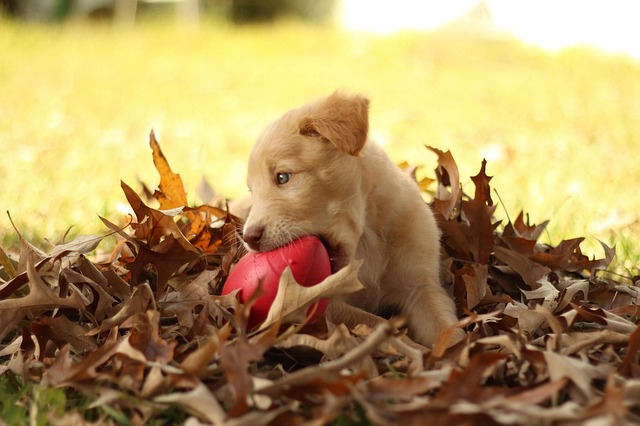Labrador retriever puppies are gentle, smart, active – and adorable! A lot of people believe that Labradors are more sociable and intelligent than other dogs and we know that the Labrador retriever breed, also referred to as “Labs”, is the most popular dog in the whole USA.
Though Labradors are smart and learn quickly, which means they are highly trainable and great family dogs, these best dog training tips will help. Once they master the basics, Labs will continue to learn new tricks to keep their minds active and alert.
You can begin training Lab puppies around 8-weeks old and you will find that that are quick learners and always willing to please their trainer. Don’t wait until they’re older, because once they get older than six months it become a little harder to train them. That being said, Labs are great dogs and trainable even as they get older, though the most critical learning period for a Lab puppy is the first six months of their life.
When you start training your Labs, the first few weeks you will need to build a good relationship with your puppy. You can do this by spending time with your puppy bonding, playing dog games, and creating trust. The beginning training will start with teaching basic skills and commands, like NO, Sit, Come, Stay, Leave It, and Down.
Something else you’ll have to do is socialize your puppy. In the first month of training, you should introduce new people and places to your Labrador puppy. If you have children, you need to create a friendly environment between your dog and your children. By doing this, your dog will be more familiar with people and strangers, and more likely to befriend them۔
Labradors do have a lot of strength and energy. If they are not given regular exercise, they get tired and bored very quickly. Due to lack of exercise, their behavior can deteriorate. What then could happen is your Lab could start barking constantly, growling, and digging for no reason. Labrador dogs mostly love lots of walks and open play. Exercise is the best way to wear out your Labrador and help to burn off all their energy.
After that, you should start some type of basic training and obedience class which is great with labs since they’re really willing to learning new things. Take advantage of this while they’re still a puppy by enrolling in a class with other dogs which will help you to socialize them as well.
During the first classes for training, you will probably teach your lab to come, go, heel, sit and drop it. In more advanced classes after you nailed the basics, you can begin training your lab to retrieve, though you might find they are already willing to do that when you’re throwing a ball with your dog.
During training, the most important thing to remember is to give lots of positive reinforcement in an effort to encourage them to repeat the correct behaviors and actions. Labradors are always willing to learn, play, and always loved. We can provide the best training by using their Nature well. If they behave well, you should reward them. That improves the ability to learn.
You should avoid using physical punishment and yelling during training. Physical punishment and yelling always cause fear and distrust and can potentially increase aggression in dogs. Not to mention hitting and kicking is animal abuse, something should not be done by anyone.
Being consistent in your training is very effective and continue to practice the training commands multiple times a day to reinforce the dogs training.
If once your dog barks for food and you tell him “NO”. Then you hold it until it goes quiet. The next day, the dog barks and you provide him with food. In this way, the dog does not learn anything. Make Sure “NO” always means “NO” otherwise your dog will be confused.
You must be patient while training your dog because training takes time, effort, and energy. When you are training your dog it means your changing their behavior. It will take a lot of time and effort to train you Lab and you must start with the basics. It may take more than one attempt to change a dog’s behavior and teach it. It may take time for him to understand your expectations and commands.You have to be patient – patience is the key to successfully training your puppy.



